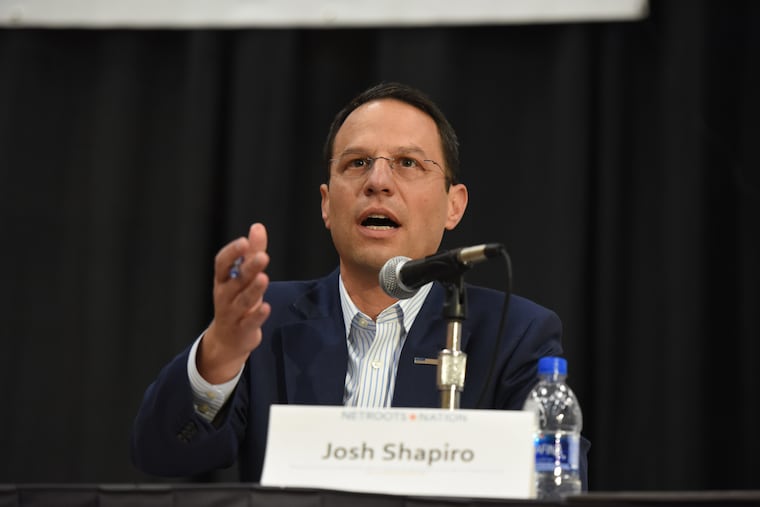Pennsylvania attorney general sues family who owns Purdue Pharma over its role in the opioid crisis
Several other attorneys general have said they’re not satisfied with a tentative settlement in a federal lawsuit because the Sackler family hasn't committed more of their personal fortunes.

A day after Purdue Pharma reached a tentative settlement in a federal lawsuit over its sales of opioid painkillers, Pennsylvania’s attorney general filed a separate lawsuit against members of the Sackler family — the company’s owners — alleging that they “are personally liable for the devastation of the opioid crisis.”
Josh Shapiro and others had been negotiating a possible settlement with Purdue Pharma in the federal case until talks broke down last week. The case had consolidated thousands of lawsuits brought by municipalities from all over the country who alleged that Purdue Pharma’s marketing of the opioid painkiller OxyContin fueled an opioid overdose epidemic that has killed thousands.
Twenty-two state attorneys general and more than 2,000 cities and counties had accepted the settlement — reportedly worth $10 billion to $12 billion — under which Purdue would declare bankruptcy and instead become a trust “whose main purpose would be to combat the opioid epidemic,” the Associated Press reported.
The Sacklers would give up control of the company and contribute $3 billion of their personal funds in the deal, the AP reported.
Shapiro and several other attorneys general have said they’re not satisfied with the settlement because the Sacklers haven’t committed more of their personal fortunes. Pennsylvania is among the states hardest hit by opioid-related deaths.
“Through our negotiations with Purdue Pharma, it became crystal clear the Sacklers have no intention of taking any ownership for engineering an epidemic that claims the lives of 12 Pennsylvanians each day,” Shapiro said in a release Thursday morning. He wrote that his lawsuit would “require this family of billionaires” to “take responsibility for the pain they caused.”
Shapiro’s lawsuit was filed under seal and is not publicly available.
New Jersey Attorney General Gurbir S. Grewal also said that he would continue to pursue the Sacklers in court.
“Purdue Pharma has been morally bankrupt for years. If the company enters financial bankruptcy as well, New Jersey will continue to pursue all available legal options against those responsible,” he wrote in an email Wednesday. “If Purdue cannot pay for the harm it inflicted, the Sacklers will.”
Scott Burris, a professor of law at Temple University’s Beasley School of Law and director of its Center for Public Health Law Research, said cases that personally go after the heads of corporations are generally rare. Most cases like the federal suit against Purdue end in settlement, Burris said.
He said that many municipalities who sued are hoping to recoup the costs of treating and preventing opioid addiction and overdose — money that advocates hope will go toward public-health initiatives, drug treatment, and harm-reduction measures for people who use drugs.
“On that level, who cares [what the terms of the settlement are], as long as you get the money,” he said. “The only questions should be, is this enough money, and how should it actually be used?”
But there’s another purpose behind lawsuits of this nature, Burris said: “To what extent are these supposed to be about creating accountability for this mess? It’s clear that the drug companies have a lot to account for. And the Sacklers and Purdue in particular, I think, outdid itself in the egregiousness of its recklessness in promoting OxyContin as safe, safer than other opioids, and in trying to ramp up sales."
Still, he cautioned those who would hold up Purdue, or the Sacklers, as the only ones responsible for the opioid crisis. Other pharmaceutical companies also aggressively marketed opioid painkillers. And the federal government, he said, should have cracked down far earlier on opioid overprescribing — as early as 2001, when epidemiologists first began noticing a rising overdose death rate.
“Blaming the Sacklers has a cinematic quality to it, in its emotional power, in the kind of rough justice it represents. They have certainly profited immensely from all this sorrow, and I see no reason why they shouldn’t be held accountable," he said. “But at the same time, we have to remember that there’s a lot more accountability still waiting to be had.”